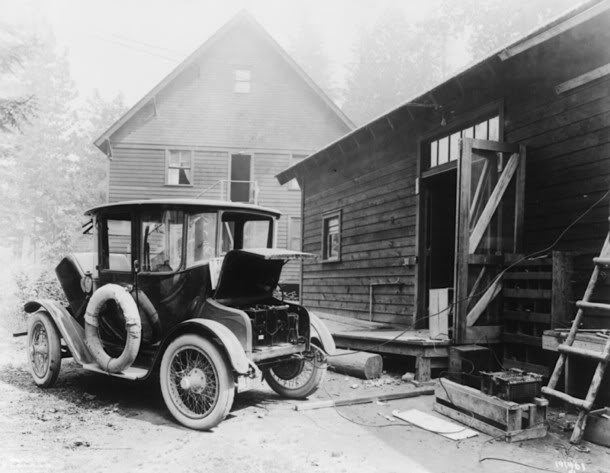My post here has led to some interesting email exchanges. I’m reposting one of them here, which was triggered by someone criticizing the Chevy Volt as “just another hybrid” instead of a “real” electric car.
I give a talk to various audiences titled “Hydrogen Cars, Ethanol Fuel, Wind Farms, and Other Silly Ideas.” One of the silly ideas I talk about is electric cars.
Believe me, I hate stinking up the atmosphere with burned-hydrocarbon emissions (which is why I bike to work, but that’s not practical for most people). But there are reasons the pure electric car has lost in every market competition dating back to the late 1800s. (The Daimlers built an electric car, and so did Thomas Edison. Both failed in the marketplace.) One reason is charging time.
Random factoid of the day: pumping gasoline transfers energy into your tank approximately 1000X faster than the “high-speed” 240V charger on the Tesla Roadster transfers energy to the batteries. Three orders of magnitude faster. That’s one of the reasons gasoline (and diesel) won the wars.
Yes, we need better batteries. And faster charging. Right now, those are major problems in physical chemistry, and the team that comes up with an answer won’t need a Nobel Prize… they’ll be wealthy enough to endow their own series of prizes. And, no, I don’t believe that Better Place has the answer. High-speed battery swaps sound good until you realize there is zero standardization… so your station needs a rack of Ford batteries, and a rack of Toyota batteries, and a rack… Bozhe moy, u meenya tapor v golove! At a certain point, the inventory costs for a Better Place battery-swap station are just insane. Duracell tried to do something much less ambitious with standardized laptop batteries years ago, and with all their market clout, they failed abysmally. I don’t see how Better Place can win (barring the “invisible foot” of government mandates).
I think the plug-in hybrid is a good compromise. You get the extended range you need in America — we’re a big country! — and the speed of “recharging” via gasoline when you need it in a hurry. Read this article about a heroic trip from SFO to Yosemite in a Tesla Roadster. Two multi-hour charging stops to go 200 miles? Normal humans simply won’t put up with this kind of inconvenience:
And you don’t have to worry about where you’re going to plug the damned thing in if you don’t have a garage.
But, when you run a plug-in hybrid on electricity, you shift the pollutants to some centralized power plant where they can be managed and mitigated, instead of being emitted ten feet from my nostrils. And, if you’re driving it in France where the electric power comes from a nuclear plant, there are no carbon emissions at all! And, since France wasn’t afflicted with the Carter presidency, they reprocess their nuclear fuel safely and efficiently, and they don’t have the “Yucca Mountain dilemma” about what to do with their nuclear waste. Solved problem.
The Volt isn’t perfect. And I’m no GM fan. But it’s probably about the best you can do with modern engineering and battery technology. We need to do better, but ragging on GM for doing their best isn’t helpful. I’m looking forward to test-driving a Volt, and I hope it’s an enormous success. We need it to be.

Historically, we’re spoiled to be concerned about 40 mile ranges.
Think about your link for the 200 mile trip. Now look back in the history to before WWII (just over 70 years ago), there were no interstate highways, your car got somewhere around 8mpg, its shocks barely existed, its tires were tall, thin, and likely to pop, and it had a very short expected life (enough that a 400 mile trip would be something you would rarely attempt.)
Now realize that this generation is still alive (and we wonder why they are hesitant to drive far or at night)
The electric car might only suit people 90% of the time, the rest of the time, we have Rental Cars, Zip Cars, Airplanes, and that train thing that we killed.
If ‘normal’ people calculated their mileage at the ~$1/mile that it cost (est in 2008) they would most certainly live closer to work and stay closer to home.